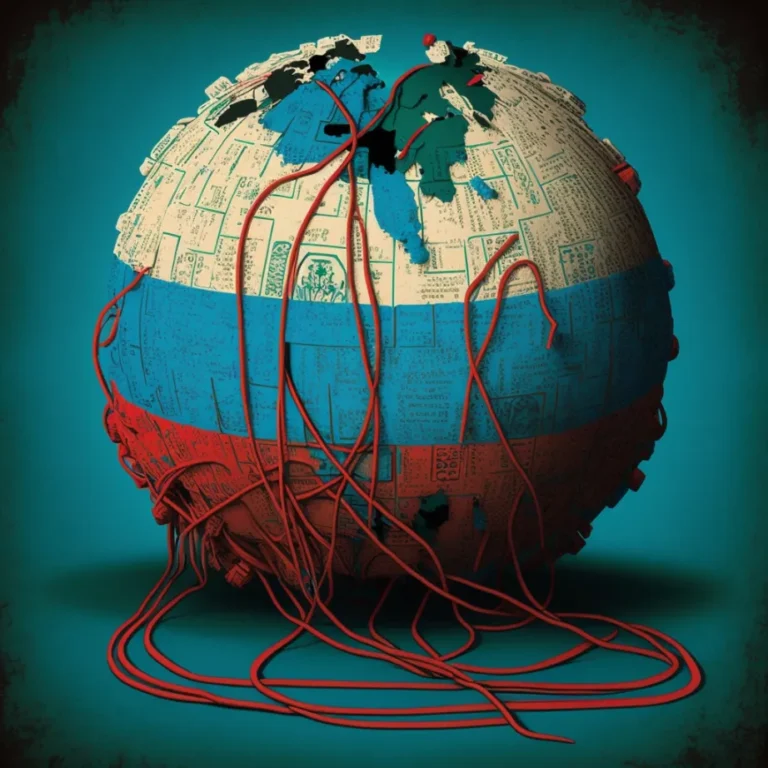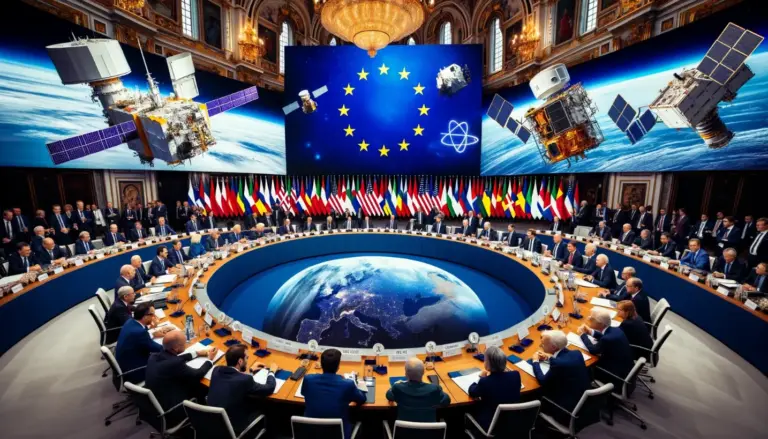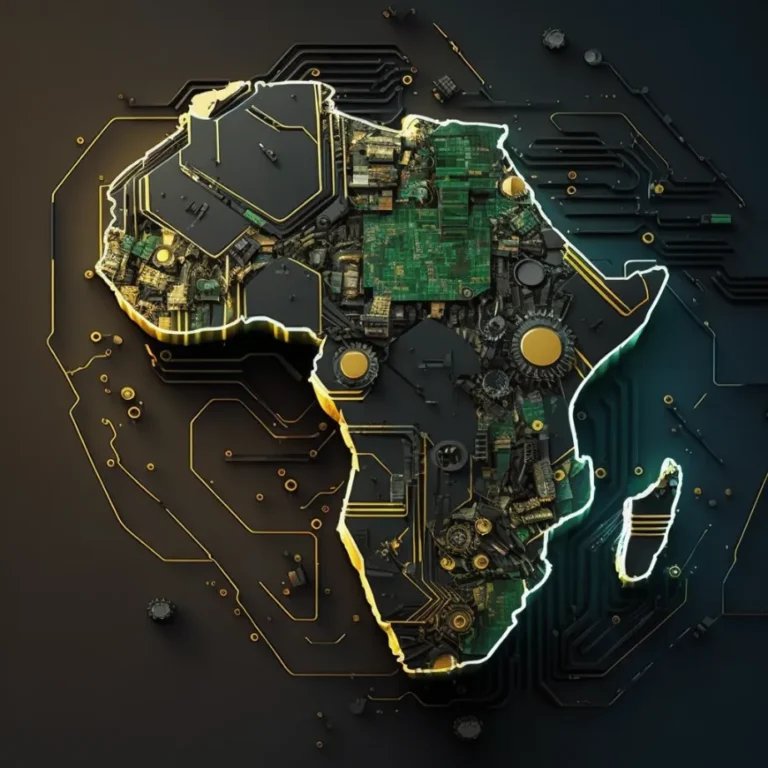Sowing the seeds of enhanced cybersecurity cooperation within the G7

At the June 2024 Apulia Summit, Group of Seven (G7) leaders affirmed their resolve to work together to counter strategic threats and hold malicious cyber actors to account. They committed to taking concrete steps to improve collective resilience through the newly established G7 Cybersecurity Working Group, injecting unprecedented political fuel into this new G7 vehicle.
The authors of this article worked at the core of the Italian National Cybersecurity Agency (ACN) task force mandated to put together the new G7 Cybersecurity Working Group, proposed under Italy’s G7 leadership in 2024. In this piece, we reflect on the development of this working group, as well as its challenges and successes.
Why a new cybersecurity group matters for the G7
Cyber threats and risks are ubiquitous and rising. Ransomware attacks, for instance, increased globally by 74% in 2023. The cyber threat landscape features an ever-growing number of actors and an ever-greater variety, intensity, and complexity of attacks. The 2024 Munich Security Conference report indicated that G7 nations consider cyberattacks their second most significant threat. Italy alone suffers 10% of global cyberattacks; in 2024, a quarter of incidents in the manufacturing sector worldwide were against Italian companies.
Meanwhile, the provision of cybersecurity does not keep up with the pace of threats. Shortages of skills, capacities, and policy solutions undermine the protection of digitalised societies and their core assets from cyberattacks. The frequently cross-border nature of cybersecurity risks, combined with the pressing need to ensure safe and secure technological innovation, makes transnational cooperation and governance a political imperative.
For these reasons, G7 leaders have stepped up efforts to enhance the security and resilience of cyberspace.
Existing initiatives at the G7 and the need for a new working group
G7 cyber initiatives range from cyber diplomacy and cybercrime prevention to financial sector cybersecurity and the resilience of technological innovation and digital transformation.
The Ise-Shima Cyber Group, established in 2016, strengthens collaboration among G7 foreign ministries to promote security and stability in cyberspace. The initiative aims to encourage responsible state behaviour in cyberspace, build confidence and protect individuals, societies, and the shared principles of rule of law and democratic values, while reaping the benefits of technology.
The Cyber Expert Group, founded in 2015, coordinates cybersecurity policy and strategy across the eight G7 jurisdictions to improve financial cyber resiliency. It also operates as a channel for sharing information, assessing the financial threat landscape and facilitating incident response.
Yet, as the G7 members gradually established cybersecurity agencies, the opportunity – and rationale – emerged for a dedicated platform to harmonise their approaches and tackle shared challenges, enabling the G7 to take more coordinated action.
The goal of the G7 Cybersecurity Working Group was to permanently connect the diverse agencies and centres for cybersecurity in the G7 countries plus the European Union. In the G7, national cybersecurity agencies and centres are embedded in diverse institutional frameworks, each reporting to distinct political authorities. The working group aims to create a community of practice among like-minded agencies, built on shared values, shared interests, and a shared vision for the future of the cyberspace, bridging institutional divides to solve common problems and strengthen national and collective security.
The working group facilitates transnational interagency cooperation, including adaption of tools and operating standards and sharing of knowledge and good practices, while pursuing national security interests.
How did it happen?
Building the G7 Cybersecurity Working Group took several intense months and a singular focus: joining forces. The Italian National Cybersecurity Agency promoted the initiative, domestically and with G7 partners, and designed the collectively implemented process through discussions with each individual partner.
The central challenge was building trust and credibility. Domestically, this meant working with other ministries and agencies to fine-tune the scope of the proposal within other pre-established initiatives. Internationally, we had to ensure the new effort would complement rather than duplicate existing frameworks within and beyond the G7. It was crucial to clarify the objectives and scope of the working group, especially amid early scepticism about the added value of a new layer of cooperation. Furthermore, we needed to build confidence in the ability of the ACN, the youngest and smallest of the seven national cyber agencies, to provide sufficient leadership and deliver concrete policy outcomes alongside long-established institutions.
A small, ad hoc, and deeply motivated task force drove the entire process. Operating in start-up mode and with a clear vision, this ‘SWAT team’ handled everything from logistics and substantive content to delicate policy coordination and diplomatic relations. Time was not on our side. We worked under immense pressure, knowing the mission was to advance cybersecurity cooperation in a group of the world’s most advanced economies, like-minded democracies, and leaders in emerging technologies. For an agency that had not even existed three years earlier, spearheading such an initiative was a formidable challenge, and immensely rewarding.
What has been the impact?
The working group finally held its first meeting in Rome, on 16 May 2024, under the chairmanship of the ACN director general Bruno Frattasi. Representatives from all G7 cyber agencies, the EU Commission, and the European Union Agency for Cybersecurity (ENISA), together with the deputy national security advisors of the United States and Japan, agreed on a programme consisting of two work streams: one on the security of critical infrastructures, focused on the energy sector, and one on the cybersecurity of artificial intelligence. The latter was subsequently divided into two focus areas, dealing with the security of AI supply chains and the protection of critical infrastructures from malicious use of generative AI.
One example of our work was the development of an AI Software Bill of Materials (SBOM). To secure an AI system is to secure its supply chain. Here, transparency is essential. Information about the entire AI life cycle – the process of designing, developing, deploying, and managing an AI model – must be available. The working group addressed this by fostering convergence among members on technical and policy aspects of an SBOM for AI and by defining and operationalising the SBOM concept. Think of an SBOM for AI like a scanner at an airport. The goal of the SBOM is to screen what is inside an AI system. This enhances the transparency, security, and risk management of AI systems. Cooperative efforts led by Italy and Germany have provided G7 members with guidelines on how to build these ‘scanners’, including a common understanding of the key elements needed for these bills of materials to function effectively.
On 3 December 2024, the group met again in Rome to take stock of the work done. Together, the group’s members created a collaborative space, a sort of fusion centre, despite the slightly different institutional roles that each plays within its respective national security architecture. Based on these achievements, the agencies agreed to expand their areas of cooperation, proposing an ambitious agenda that includes themes such as transitioning to post-quantum cryptography, securing the internet of things, and applying principles for the cybersecurity of health and telecommunications supply chains.
The G7 Cybersecurity Working Group has gone mostly unnoticed by the wider public – cyberattacks make more headlines than policy efforts aimed at countering them. Nonetheless, the working group delivered a concrete result: a new way for like-minded cybersecurity frontrunners to work together. In the face of a global increase in cyber threats, a collective and cohesive response is a necessity.
The opinions, findings, and conclusions or recommendations expressed in this article are those of the authors and do not necessarily reflect the views of either the Italian National Cybersecurity Agency or the G7 Cybersecurity Working Group partners.






